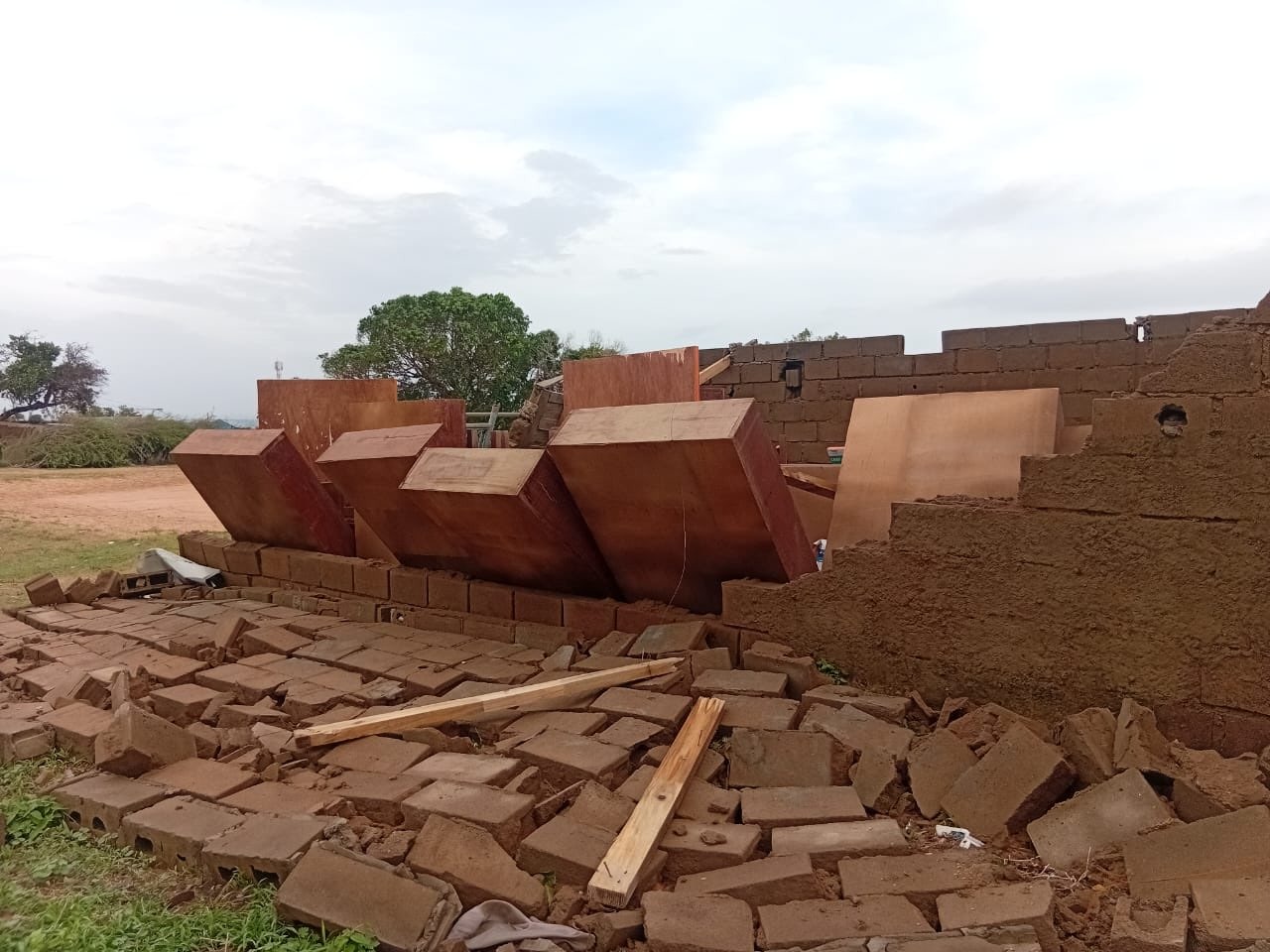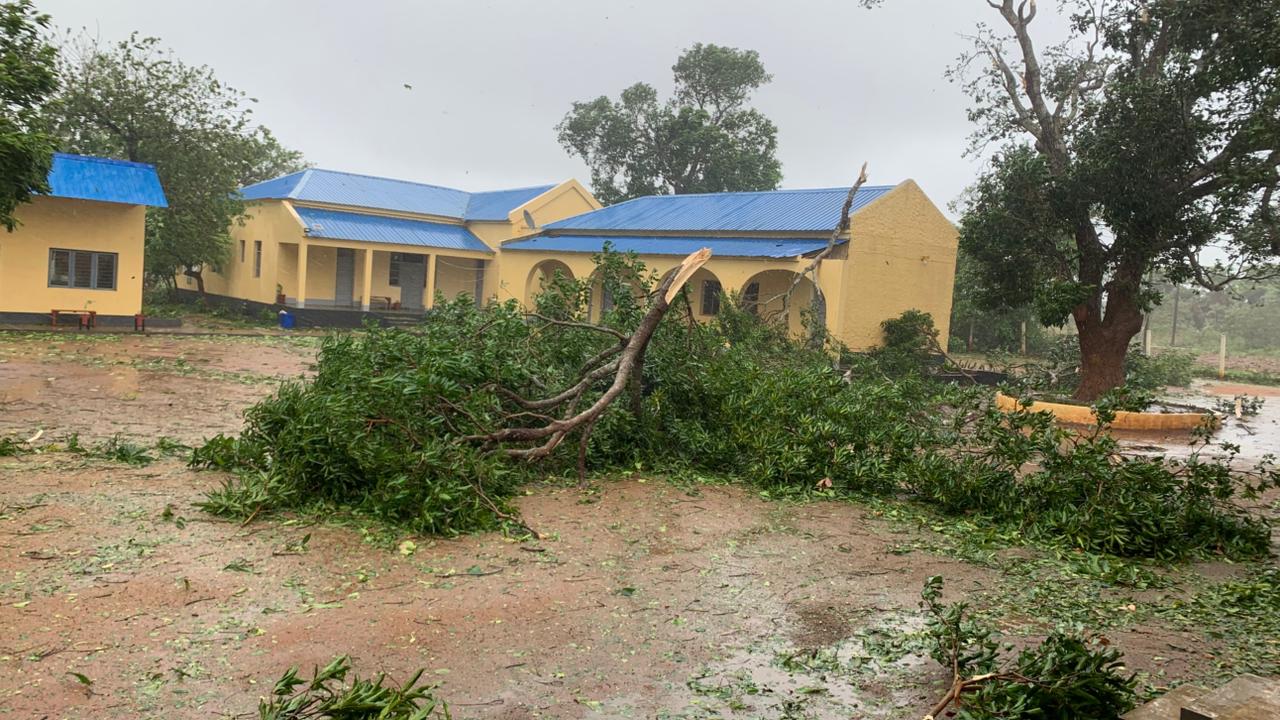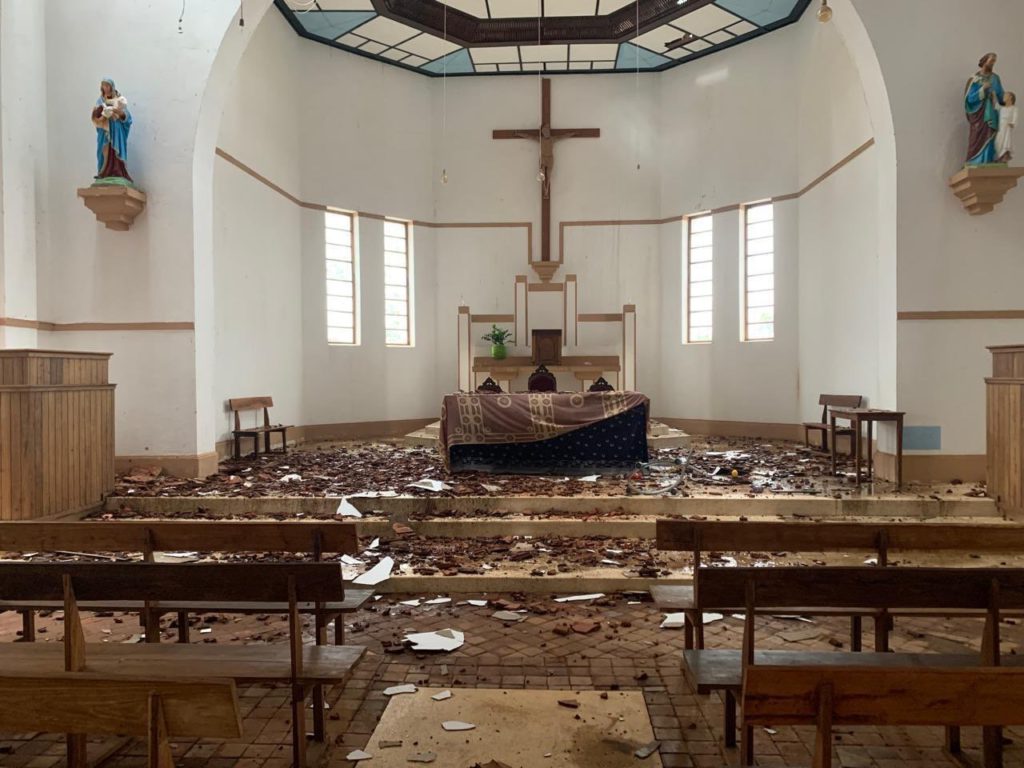Cabo Delgado was the area most affected by the fury of cyclone Chido, which swept through Mozambique in the early hours of Sunday, 15 December, after causing destruction in the French archipelago of Mayotte. There are dozens of fatalities, thousands of people lost everything, and now are asking how they will survive. In an initial report, the Diocese of Pemba speaks of a “frightening scene of destruction”, and even the IDP camps for victims of terrorism were levelled.
As soon as the sun rose on Monday, 16 December, the damage caused by Cyclone Chido in Mozambique became apparent. Several dioceses were affected, including Nacala, Nampula, and Pemba, through Tete and Lichinga, all of which are reporting widespread destruction. Thousands of people lost their homes and their belongings and are now asking how they will get by.
The Diocese of Pemba, which covers Cabo Delgado, suffered the worst of the damage. “This cyclone was devastating. It is frightening to see how much destruction the strong winds caused in such a short time,” said local Bishop António Juliasse, in a message to the Catholic charity Aid to the Church in Need (ACN). Thousands of fragile houses were swept away by the wind, and even churches, which are normally built from more resistant material, were destroyed.

“In our diocese, close to 50 churches, from parish headquarters to the churches of local communities, were either destroyed, or sustained damage to their roofs. It is a lot of destruction. We also have schools which had their roofs blown off, or floor destroyed, and a lot of other assets were wrecked as well. In Chiúre, all the roofs of the buildings in the Farm of Hope were damaged, so the destruction was widespread,” the bishop adds, asking for prayers for the people in the region. ACN has stepped forward with an offer to help restore these structures which are so important for the Church.
Desolation
Sister Maria Aparecida Ramos, an ACN project partner in Pemba, has been charged with gathering information on the extent of the damage, but it’s not an easy job. “We are having a lot of difficulty with communication,” the religious sister told ACN on Monday, 16 December. “We have lost all communication with Mecufi. I sent a motorcycle there to get news, she explains, but it didn’t take long to begin to get an idea of how bad the tragedy was in Cabo Delgado. “It is a very desolating situation, there is much destruction,” said the sister, adding: “Please pray!”
In Nacala, Nampula and Tete efforts were also underway to take stock of the damage caused by Chido. Bishop Alberto Vera of Nacala summed the situation up briefly: “All of the area on the banks of the Lúrio river was heavily damaged, especially the districts of Memba and Erati. In Chione, Odinepa and Alua, many adobe houses were destroyed. One young person was killed when a wall fell on her in Alua. Many chapels, schools and parish centers lost their roofs, and the roads are impassable,” Bishop Alberto wrote to ACN. His message ends with a sentence that well describes his state of mind: “Each photograph I receive is more heartbreaking than the last.”

Thousands of houses destroyed
ACN has also been receiving some of these heartbreaking photographs which show the fury of the wind and the rain that swept away more than just walls and roofs. Thousands of people also saw their livelihoods taken by the storm in this region which has been facing a desperate situation since October 2017, when a terrorist insurgency, led by a group claiming allegiance to the Islamic State, broke out. On Sunday, however, the terror came from the skies, with winds that reached 260 kilometres per hour and laid bare the great poverty in which the people of northern Mozambique live.
Sister Aparecida speaks of “pain and despair” in the entire province of Cabo Delgado, “just when the people were beginning to sow their crops, hoping not to spend Christmas hungry. Now what? They have no food, no home, no belongings.”
“What will become of us? We have lost everything,” has become a common refrain among the population. There is hardly any electricity, communication is scarce, and the terrorist groups remain active, continuing to spread fear and destruction. But amidst the despair people can be sure that the Church is there to welcome those most in need, with open arms. Religious communities and parishes, even those that saw their own infrastructure destroyed or damaged, are taking in families that lost everything, wherever they can host them.
Aid to the Church in Need already has many projects on the ground to help victims of terrorism and the local Church and has renewed its appeal to friends and benefactors to show their solidarity with Cabo Delgado.


